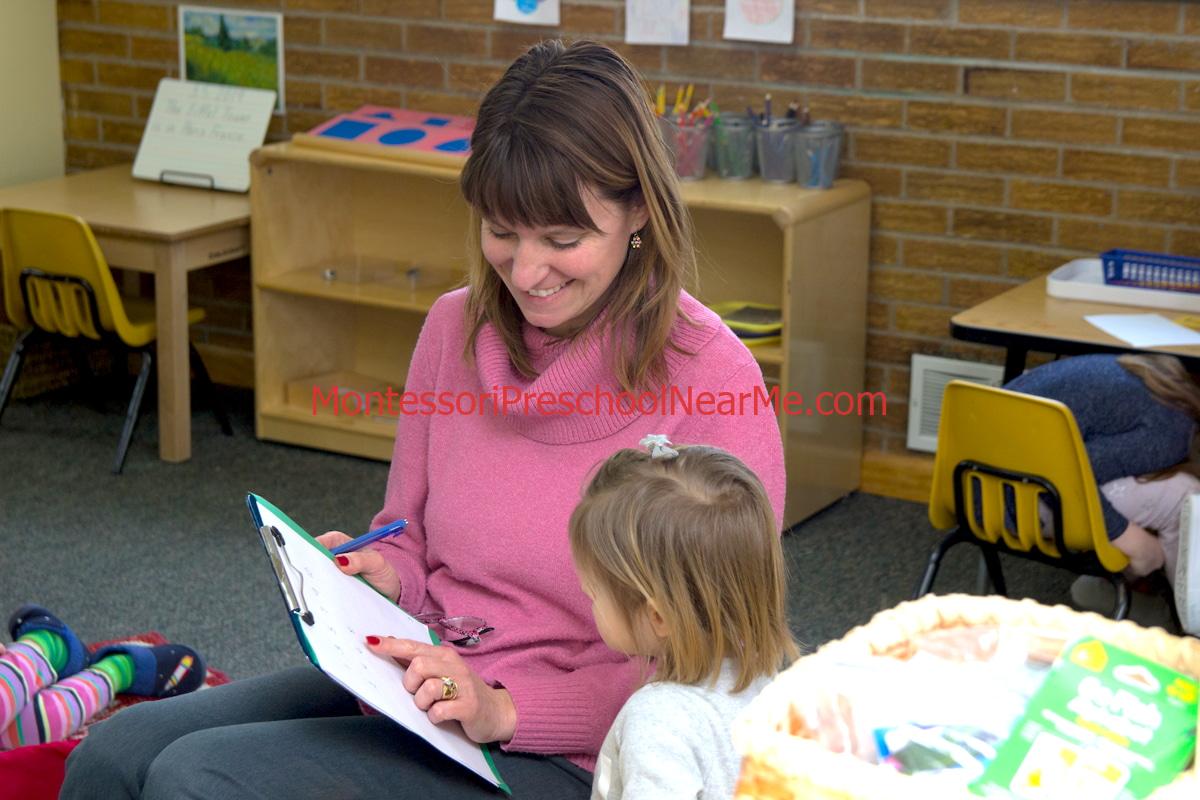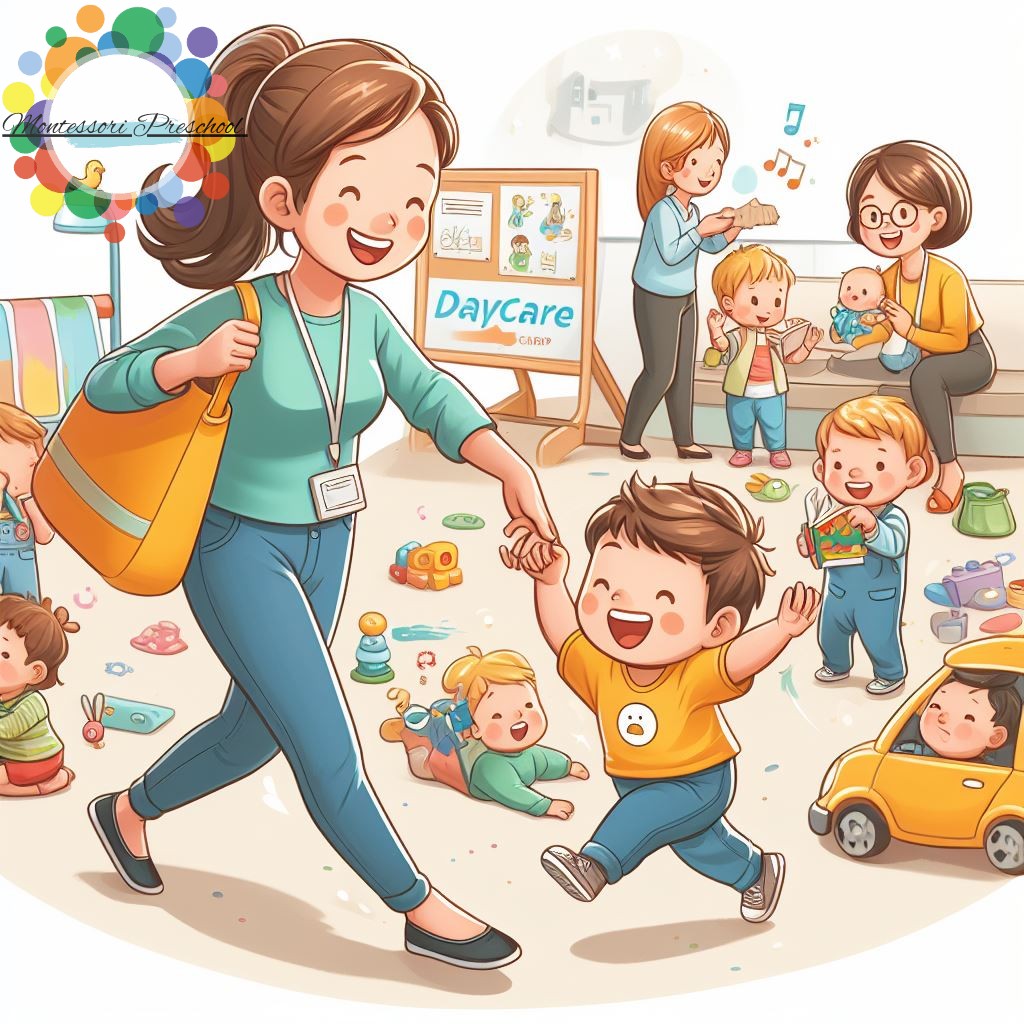
Welcome to the world of Montessori parenting! In this comprehensive guide, we will explore the transformative power of Montessori education and how parents can incorporate its principles into their day-to-day lives.
Montessori education is a child-centered approach that emphasizes independence, collaboration, and hands-on learning. By understanding and embracing this philosophy, parents can create a nurturing environment that supports their child’s development and fosters a love of learning.
In this article, we will discuss the benefits of Montessori parenting, the various training courses available for parents, and practical tips on how to implement Montessori principles at home. Whether you are an aspiring or practicing Montessori educator, a parent, caregiver, or school, this guide will provide valuable insights and resources to help you unlock your potential as a parent.
Let’s dive into the world of Montessori and discover how it can positively impact the lives of both children and parents!
What is Montessori Education?
Before we delve into Montessori parenting, it’s important to understand the foundation of this educational approach. Developed by Dr. Maria Montessori in the early 20th century, the Montessori method is based on the belief that each child is a unique individual with their own innate abilities and potential.
Montessori classrooms are carefully prepared environments where children are encouraged to explore, discover, and learn at their own pace. Instead of traditional teaching methods, Montessori educators act as guides, providing age-appropriate materials and activities that promote self-directed learning.
The Montessori approach is characterized by its focus on practical life skills, sensorial exploration, language development, mathematics, cultural subjects, and the arts. By engaging in hands-on activities and working with specially-designed materials, children develop not only their cognitive abilities but also their social, emotional, and physical skills.
The Benefits of Montessori Parenting
As parents, we all want the best for our children. Montessori education offers numerous benefits that can support their holistic development and set them up for success in life.
- Independence: Montessori parenting encourages children to become self-sufficient and independent. By providing opportunities for them to make choices, take responsibility for their actions, and develop practical life skills, parents foster a sense of autonomy and confidence in their children.
- Love of Learning: Montessori education instills a lifelong love of learning in children. By focusing on their natural curiosity and providing them with a stimulating environment, Montessori parenting cultivates a thirst for knowledge and encourages children to actively engage in the learning process.
- Social Skills: Montessori classrooms promote collaboration, respect for others, and empathy. By emphasizing the importance of community and fostering meaningful relationships, Montessori parenting helps children develop strong social skills and emotional intelligence.
- Individualized Learning: Montessori education recognizes that each child has unique strengths, interests, and learning styles. By tailoring the learning experience to meet their individual needs, Montessori parenting allows children to progress at their own pace and reach their full potential.
- Critical Thinking: Montessori classrooms encourage children to think critically, solve problems, and make decisions independently. By providing them with open-ended materials and activities, parents foster creativity, innovation, and analytical thinking skills in their children.
These are just a few of the many benefits of Montessori parenting. By embracing this approach, parents can create a nurturing and supportive environment that allows their children to thrive both academically and emotionally.
Montessori Training Courses for Parents
To fully unlock the potential of Montessori parenting, it is essential for parents to gain a deeper understanding of its principles and methods. Thankfully, there are numerous training courses available that cater specifically to parents and caregivers.
- Introductory Courses: These courses provide a comprehensive overview of key Montessori concepts and introduce parents to the philosophy and practices of Montessori education. Through interactive modules and engaging materials, parents will gain foundational knowledge and insights into how to incorporate Montessori principles into their daily lives.
- Practical Short Courses: Designed for parents seeking practical advice and guidance, these courses focus on specific aspects of Montessori parenting. Topics may include creating a Montessori-inspired environment at home, fostering independence and self-discipline in children, and supporting their cognitive and emotional development through Montessori methods.
- Collaboration with Adults in the Montessori Classroom: This course is particularly beneficial for parents who are actively involved in their child’s Montessori education. It provides valuable insights on how to effectively communicate and collaborate with teachers and other parents, creating a cohesive and supportive learning community for the child.
- Professional Development Courses for Aspiring Montessori Educators: For parents who have a passion for Montessori education and are considering a career in this field, professional development courses offer a wealth of knowledge and resources. These courses cover topics such as classroom leadership, lesson planning best practices, and earning an advanced Montessori certificate.
- Online Video Courses: Perfect for busy parents, these self-paced video courses take parents step-by-step through Montessori concepts and practices. From understanding the Montessori curriculum to creating educational materials at home, these courses empower parents to become confident Montessori guides for their children.
Remember that when choosing a Montessori training program, it’s essential to ensure that the institute or organization offering the course is reputable and accredited. Look for programs that are recognized by the Montessori Accreditation Council for Teacher Education (MACTE) to ensure high-quality education and training.
Montessori Principles for Everyday Parenting
Incorporating Montessori principles into your day-to-day parenting can significantly enhance your child’s development and overall well-being. Here are some practical tips on how to embrace Montessori parenting:
- Encourage Independence: Create an environment that allows your child to engage in age-appropriate activities independently. Provide low shelves, child-sized furniture, and accessible materials that empower your child to make choices and practice self-care skills.
- Follow the Child’s Interests: Pay attention to your child’s interests and provide materials and activities that align with their passions. By nurturing their natural curiosity, you can cultivate a love of learning and support their individual growth and development.
- Emphasize Practical Life Skills: Involve your child in everyday tasks such as cooking, cleaning, and gardening. These activities not only teach important life skills but also foster a sense of responsibility, confidence, and self-sufficiency.
- Create a Prepared Environment: Designate specific areas in your home for different activities such as reading, art, and sensory exploration. Keep materials organized and accessible, allowing your child to engage in independent learning and exploration.
- Offer Freedom within Limits: Establish clear boundaries and expectations while allowing your child to have freedom and choice within those limits. This creates a safe and secure environment where your child can develop self-discipline and decision-making skills.
- Encourage Grace and Courtesy: Teach your child the importance of kindness, respect, and empathy towards others. Emphasize the value of good manners and positive communication, both within the family and in the larger community.
By incorporating these principles into your parenting approach, you can create a nurturing and supportive environment that promotes your child’s holistic development and encourages their love of learning.
Creating a Montessori Environment at Home
One of the key aspects of Montessori parenting is creating a prepared environment at home that fosters independence, exploration, and learning. Here are some practical tips on how to create a Montessori-inspired space for your child:
Arrange Furniture and Materials
Consider the layout of your home and designate specific areas for different activities such as reading, art, and practical life skills. Use child-sized furniture and low shelves to make materials and toys accessible to your child. Ensure that everything has a designated place to promote order and organization.
Choose Developmentally Appropriate Materials
Select toys and materials that are open-ended, encourage creativity, and allow for multiple uses. Opt for natural materials such as wood, cotton, and metal, as they provide sensory stimulation and are more environmentally friendly. Avoid plastic and battery-operated toys that limit creativity and sensory exploration.
Create a Language-Rich Environment
Expose your child to a wide range of vocabulary by using descriptive language and naming objects during daily activities. Read books with your child and engage in meaningful conversations to expand their language skills. Label items in your home to promote literacy and language development.
Foster Independence
Provide your child with child-sized tools and materials to encourage independence and self-care skills. For example, a low stool in the bathroom can help them wash their hands independently, and a small broom and dustpan can allow them to help with cleaning up after meals.
Encourage Order and Organization
Teach your child the importance of tidying up after play and maintaining order. Provide designated spaces for each toy or material and guide your child in putting things back in their designated place. This promotes responsibility, organization, and a sense of ownership.
Incorporate Nature
Bring elements of nature into your home, such as plants, natural light, and natural materials. Create a sensory garden or a small vegetable patch in your backyard to allow your child to connect with nature and learn about the environment.
By creating a Montessori-inspired environment at home, you provide your child with the tools and opportunities to explore, learn, and develop their independence.
Supporting Child Development through Montessori Methods
Montessori parenting goes beyond the physical environment and extends to the way parents interact with their children. Here are some Montessori methods that can support your child’s development:
Observation and Follow the Child
Observe your child closely to understand their interests, strengths, and areas for growth. Follow their lead and provide materials and activities that align with their current developmental stage and interests. This allows your child to engage in self-directed learning and exploration.
Offer Sustained Focus
Create an environment that allows your child to engage in uninterrupted and sustained periods of play and exploration. Avoid unnecessary distractions and provide materials that encourage concentration and deep engagement.
Foster a Growth Mindset
Encourage your child to embrace challenges, learn from mistakes, and persist in the face of difficulties. Praise their effort and progress rather than just focusing on the end result. This fosters a growth mindset and resilience, promoting a love of learning and a positive attitude towards challenges.
Respect the Child’s Pace
Each child develops at their own pace. Avoid comparing your child to others and instead focus on their unique strengths and abilities. Allow them to progress at their own rhythm and provide support and guidance when needed.
Encourage Hands-on Learning
Engage your child in hands-on activities that promote sensory exploration and learning. Provide materials and tools that allow them to engage all their senses and learn through direct experience. This fosters a deeper understanding of concepts and promotes critical thinking skills.
Prioritize Outdoor Play
Encourage outdoor play and exploration to support your child’s physical development, sensory integration, and connection with nature. Allow your child to engage in unstructured play in natural environments, promoting creativity, imagination, and a sense of wonder.
By embracing these Montessori methods, you can create a supportive and enriching environment that fosters your child’s development across various domains.
Montessori Education for Children with Special Needs
Montessori education is inclusive and can be adapted to accommodate children with diverse abilities and learning styles. The individualized nature of Montessori classrooms allows for differentiation and tailoring of activities to meet each child’s specific needs. Here are some considerations for incorporating Montessori principles with children who have special needs:
Collaborate with Professionals
Work closely with professionals such as therapists, educators, and specialists who can provide guidance and support in adapting Montessori activities for your child. They can help identify specific goals and modify materials to meet your child’s unique needs.
Adapt the Environment
Make modifications to the environment to ensure accessibility and inclusivity. This may include providing tactile materials for children with visual impairments, using visual schedules or cue cards for children with autism spectrum disorder, or incorporating sensory integration strategies for children with sensory processing difficulties.
Individualized Learning Plans
Develop individualized learning plans that outline specific goals, adaptations, and strategies to support your child’s progress. This ensures that their learning experience is tailored to their abilities and promotes their overall development.
Sensory Considerations
For children with sensory sensitivities, create a calm and soothing environment. Reduce noise levels, provide comfortable seating, and offer sensory breaks when needed. Use materials and activities that engage multiple senses in a controlled and regulated manner.
Focus on Strengths and Interests
Identify your child’s strengths and interests and incorporate activities that align with their passions. By building on their strengths, you can boost their confidence and motivation to learn. Adapt materials and activities to meet their individual needs and provide appropriate levels of challenge.
Remember that every child is unique, and it’s essential to consult with professionals and specialists who can provide guidance and support in adapting Montessori practices for children with special needs.
How to Choose the Right Montessori Program for Your Child
With the increasing popularity of Montessori education, there are now numerous programs and schools to choose from. Here are some factors to consider when selecting the right Montessori program for your child:
Accreditation
Ensure that the school or program you are considering is accredited by reputable organizations such as the Montessori Accreditation Council for Teacher Education (MACTE) or the American Montessori Society (AMS). Accreditation ensures that the program meets rigorous standards and provides high-quality education.
Philosophy and Approach
Research the school’s philosophy and approach to education to ensure that it aligns with your values and goals. Attend open houses, observe classrooms, and speak with teachers and administrators to gain a deeper understanding of the program’s principles and practices.
Teacher Qualifications and Training
Inquire about the qualifications and training of the teachers in the program. Montessori educators should hold certification from reputable Montessori teacher training institutes. Additionally, ask about the ongoing professional development opportunities provided to teachers to ensure that they are up to date with the latest research and best practices.
Classroom Environment
Visit the classrooms and assess the prepared environment. Look for well-organized spaces, engaging materials, and a calm and supportive atmosphere. The classroom should reflect the principles of Montessori education, with child-sized furniture, accessible materials, and areas designated for different activities.
Parent-Teacher Communication
Effective parent-teacher communication is essential for a successful Montessori experience. Inquire about the school’s communication policies and opportunities for parental involvement. A strong partnership between parents and teachers creates a supportive learning community for the child.
Cost and Location
Consider the cost and location of the program and evaluate whether it fits within your budget and is conveniently accessible for your family. Take into account additional fees, such as materials or activity fees, and consider the school’s calendar and pick-up/drop-off times.
Choosing the right Montessori program for your child is a personal decision that depends on your family’s unique needs and preferences. Take the time to research and visit different programs to find the one that best aligns with your values and goals for your child’s education.
Conclusion
Montessori training for parents is an invaluable opportunity to unlock your potential as a caregiver and embark on a journey of lifelong learning. By embracing Montessori principles and incorporating them into your day-to-day parenting, you can create a nurturing environment that supports your child’s holistic development and fosters a love of learning.
Through comprehensive training courses, collaboration with Montessori professionals, and the creation of a Montessori-inspired environment at home, you can become a confident and knowledgeable Montessori parent. Your journey towards unlocking the full potential of your children starts today!
Start your Montessori adventure today and discover the transformative power of Montessori parenting. Join the prepared Montessorian Institute’s immersive parenting courses and unlock your potential as a parent!
Remember, Montessori education helps children develop independence, empathy, and a lifelong love of learning. Incorporating Montessori principles into your day-to-day life can profoundly impact your child’s development and overall well-being. Embrace the wisdom of Montessori parenting and embark on a transformative journey with comprehensive training programs designed just for you.
Unlock the power of Montessori parenting and embark on a lifelong journey of learning and growth with Montessori training for parents. Start your Montessori adventure today!



